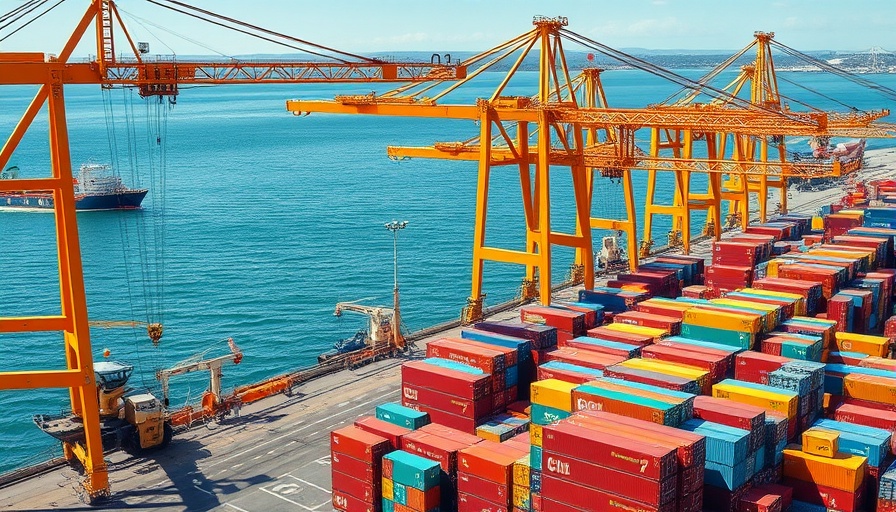
The Tariff Tug-of-War: Navigating Uncertain Waters
In a complex world where global trade is continually reshaped by tariffs and trade policies, businesses must stay agile. Recent insights shared at the 2025 Manufacturing Leadership Summit by Kerim Kfuri, CEO of The Atlas Network, encapsulate practical ways to navigate supply chain challenges hampered by these escalating tariffs. Despite the mixed signals following President Trump's retreat from some tariff fronts, Kfuri's message resonates loudly: adversity brings opportunity.
Sharing the Burden: A Collaborative Approach
One of the most intriguing suggestions from Kfuri is the idea of collaboratively absorbing tariffs. Rather than letting one party shoulder the costs, Kfuri advocates for a blended approach. A shared responsibility—where suppliers, businesses, and end consumers all partake in the tariff burden—could help maintain healthy supply chain relationships.
The concept of guanxi, or relational networks prevalent in Asian cultures, further illustrates this approach. Strong supplier relationships can facilitate discussions about cost-sharing, ultimately helping to preserve profits across the supply chain. This strategy doesn’t just cushion the immediate impact of tariffs—it fosters long-term loyalty and cooperation, yielding benefits beyond the current challenges.
Tariff Deferral: Timing is Everything
Kfuri also suggests businesses should reevaluate their import timing. By delaying shipments or utilizing bonded warehouses, companies can effectively manage tariff costs. Products can be kept in a location where tariffs are deferred until goods are released, empowering businesses to maintain inventory while avoiding upfront tariff payments.
This strategy isn't only tactical; it's a recalibration of financial flows within an organization. Instead of absorbing costs upfront, it allows businesses to better manage their resources and timing, providing much-needed breathing room in an uncertain economic environment.
Rethinking Product Value: Cost Engineering
An essential part of navigating these turbulent waters involves a comprehensive look at product pricing and engineering. Kfuri urges manufacturers to reconsider not just pricing strategies, but also the materials and methods behind their products. The focus should be on innovation: what materials can you swap out? Are there ways to present hidden benefits that you've overlooked?
This may even involve a rebranding effort that highlights these newfound attributes. Product differentiation becomes vital, offering consumers a clearer understanding of why they should pay the tariff-inflated price on certain goods.
Sector-wide Adaptations: The Value of Flexibility
Addressing tariffs is not an isolated battle. The wider economic landscape influences supply chains' dynamics, and businesses must adapt to these broader shifts. A flexible mindset and a readiness for growth can pivot companies toward innovative solutions. This period of uncertainty could serve as a powerful impetus for companies to refine operations and rethink market strategies.
Looking Ahead: Future of Global Supply Chains
The insights shared by Kfuri highlight an undeniable trend: as tariffs evolve, so must businesses. The challenge isn't just about enduring higher costs; it's about transforming how we approach sourcing, production, and relationships. As we look to the future, there are real opportunities for growth and efficiency hidden within these challenges.
In these uncertain times, it's imperative that businesses remain not only adaptable but also optimistic. The key to survival—through tariff-induced turmoil—lies in creative problem-solving and collaborative solutions.
 Add Row
Add Row 
 Add
Add 


Write A Comment